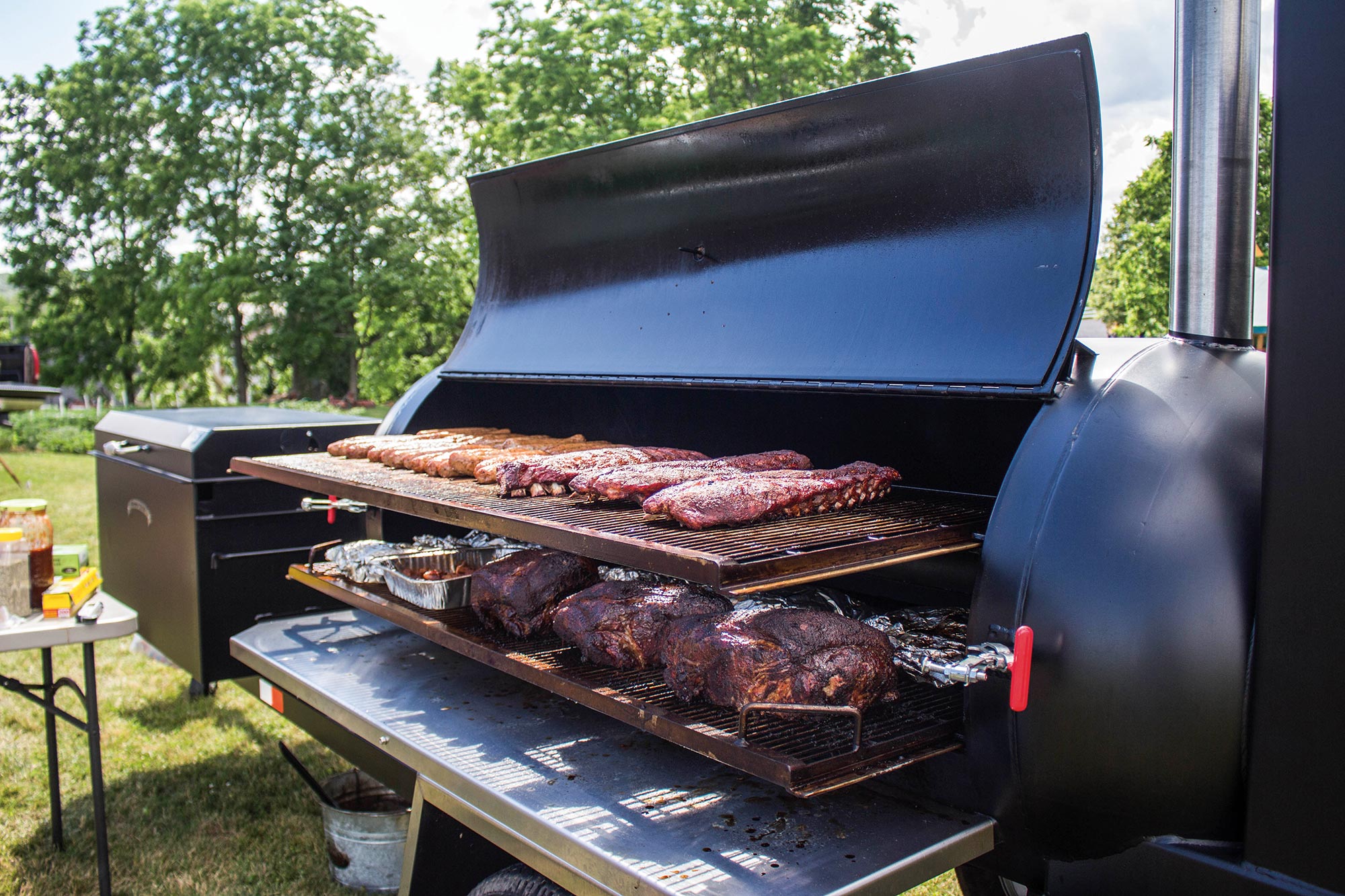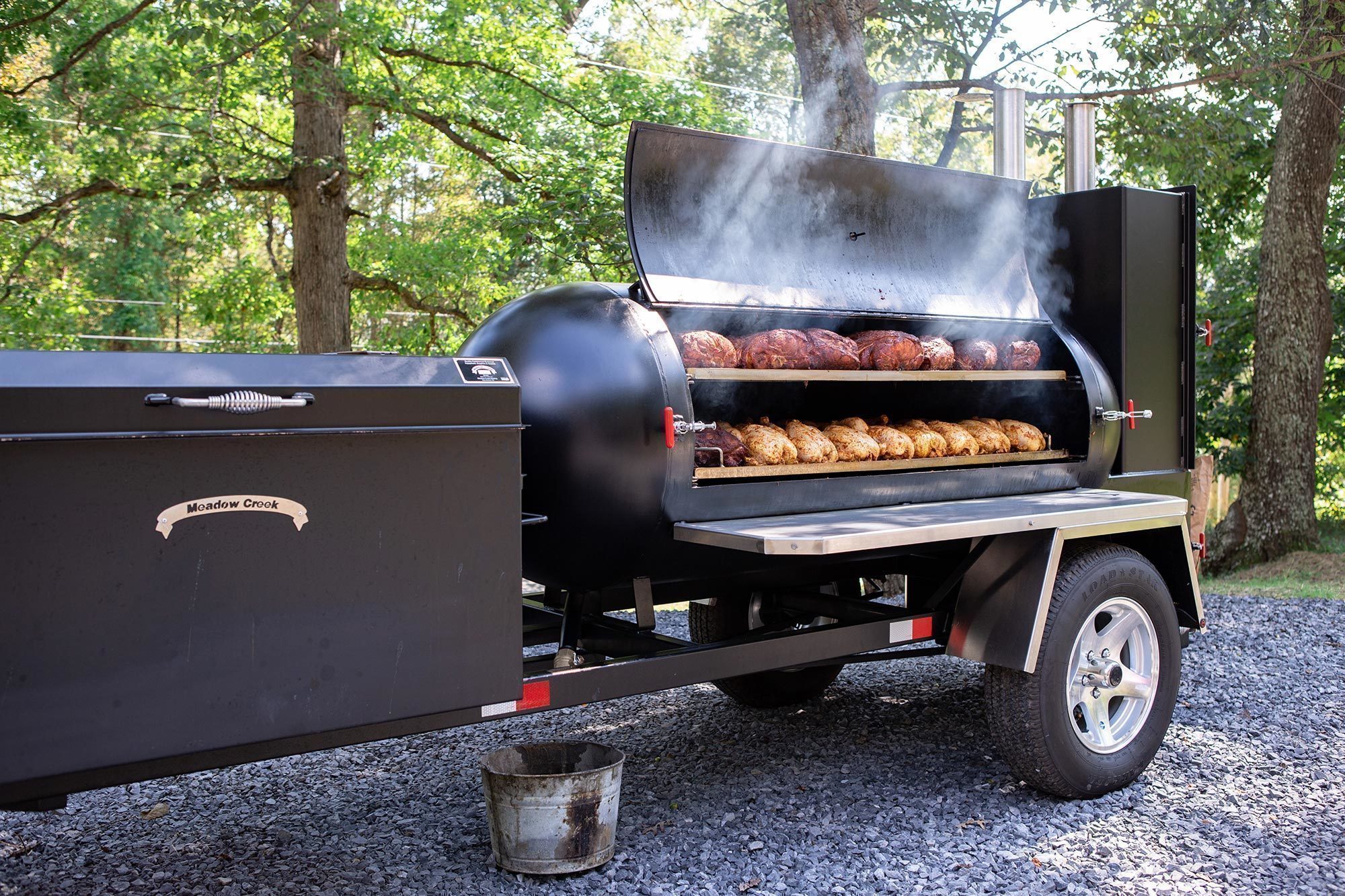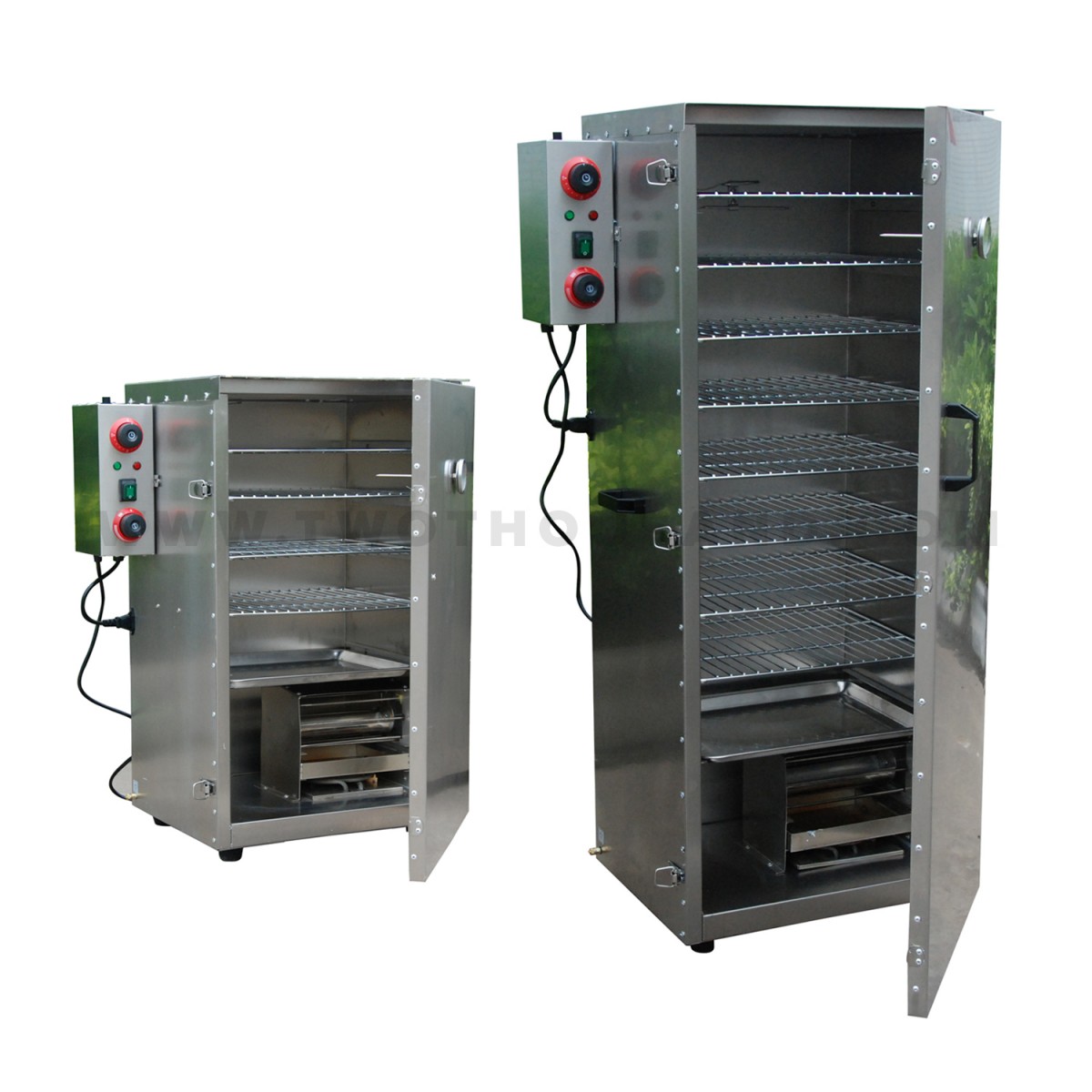Embark on a culinary journey with commercial food smokers, the maestros of flavor enhancement and preservation. These innovative appliances revolutionize the food industry, transforming ordinary dishes into extraordinary culinary masterpieces.
From tantalizing barbecue to delectable smoked fish, commercial food smokers unlock a world of gastronomic possibilities, adding depth, aroma, and an irresistible allure to your culinary creations.
Considerations for Choosing a Commercial Food Smoker

When selecting a commercial food smoker, several key factors should be taken into account to ensure it aligns with your business needs and objectives. These considerations include:
Business Size and Requirements
The size and capacity of the smoker should align with the volume and type of food you intend to smoke. Determine the daily or weekly production volume and the maximum amount of food you need to smoke at once.
Consider the available space in your kitchen or smoking area and choose a smoker that fits comfortably without overcrowding.
Fuel Type
Different fuel options for commercial smokers include electric, gas, wood, charcoal, and pellets. Each fuel type has its advantages and disadvantages:
- Electric smokers are convenient and easy to use, with precise temperature control. However, they require an electrical outlet and may not impart the same smoky flavor as other fuel types.
- Gas smokers provide consistent heat and temperature control, and are relatively easy to operate. They require a gas line or propane tank, and may not produce as much smoke flavor as wood or charcoal.
- Wood smokers impart a classic, authentic smoky flavor to food. However, they require more attention and monitoring to maintain consistent temperatures, and can be more labor-intensive than other fuel types.
- Charcoal smokers are similar to wood smokers in terms of flavor, but burn hotter and require more frequent refueling. They can be more difficult to control temperature compared to electric or gas smokers.
- Pellet smokers offer a combination of convenience and smoky flavor. They use compressed wood pellets as fuel, which are automatically fed into the smoker, providing consistent heat and smoke production.
Budget
Establish a budget for the smoker and explore options that fall within that range. Commercial food smokers can vary significantly in price depending on size, features, and fuel type. Consider the initial investment as well as ongoing costs, such as fuel, maintenance, and repairs.
Maintenance and Care of Commercial Food Smokers

Maintaining and caring for your commercial food smoker is crucial for ensuring its longevity, efficiency, and food safety. Proper cleaning, sanitation, troubleshooting, and safety precautions are essential aspects of maintaining your smoker in optimal condition.
By adhering to the following guidelines, you can ensure the smooth operation of your smoker, minimize downtime, and safeguard the health of your customers.
Cleaning and Sanitation, Commercial food smoker
Regular cleaning and sanitation of your commercial food smoker are essential for preventing the buildup of bacteria, mold, and other contaminants. This not only ensures the safety of your food products but also enhances the flavor and quality of your smoked foods.
- Daily Cleaning:After each use, remove any food residue, grease, or ash from the smoker’s interior and exterior surfaces using a damp cloth or brush. Pay special attention to the drip pan, racks, and any other removable parts.
- Weekly Cleaning:Once a week, perform a more thorough cleaning of your smoker. Disassemble the smoker as much as possible and wash all removable parts in hot, soapy water. Use a degreaser or specialized smoker cleaner to remove stubborn grease or grime.
Rinse all parts thoroughly with clean water and allow them to air dry before reassembling the smoker.
- Monthly Sanitation:Once a month, sanitize your smoker using a food-grade sanitizer. Follow the manufacturer’s instructions for the proper dilution and application of the sanitizer. Allow the smoker to air dry completely before using it again.
Troubleshooting
Despite regular maintenance, your commercial food smoker may occasionally encounter issues. Here are some common problems and their potential solutions:
- Smoker not producing enough smoke:Check if the wood chips are damp. If so, replace them with dry wood chips. Ensure the smoker’s vents are open to allow for proper airflow.
- Food not smoking evenly:Adjust the position of the food racks to ensure even distribution of smoke and heat. Rotate the food during the smoking process to promote even cooking.
- Smoker overheating:Check if the smoker’s vents are blocked or obstructed. Adjust the vents to regulate the temperature and prevent overheating.
- Electrical issues:If the smoker is not turning on or experiencing electrical problems, check the power source and connections. If necessary, contact a qualified electrician for repairs.
Safety Precautions
Operating a commercial food smoker involves certain safety risks. It is essential to follow these precautions to prevent accidents and ensure the well-being of yourself and others:
- Proper Ventilation:Ensure the smoker is operated in a well-ventilated area to prevent the buildup of carbon monoxide and other harmful gases.
- Fire Safety:Keep the smoker away from flammable materials and never leave it unattended while in operation.
- Electrical Safety:Inspect the smoker’s electrical cords and connections regularly for damage. Do not use the smoker if any electrical components are damaged.
- Personal Protective Equipment:Wear appropriate personal protective equipment, such as gloves and a face mask, when operating the smoker to prevent burns and smoke inhalation.
FAQs
What are the primary benefits of using commercial food smokers?
Commercial food smokers offer an array of benefits, including enhanced flavor and aroma, extended shelf life, and increased versatility, allowing you to explore a wider range of culinary possibilities.
How do commercial food smokers contribute to food preservation?
Smoking inhibits bacterial growth, effectively extending the shelf life of perishable foods. This process has been employed for centuries to preserve meats, fish, and other products.
What factors should be considered when selecting a commercial food smoker?
Key factors to consider include the size and capacity of the smoker, the type of fuel used, and your budget. These factors will help you choose the optimal smoker for your specific needs and business requirements.

